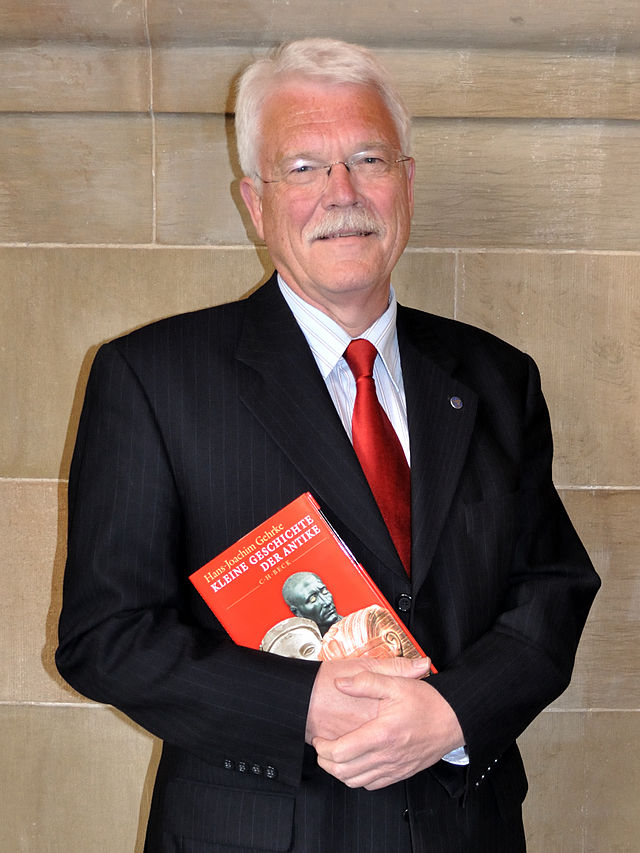Loading AI tools
German historian of classical antiquity From Wikipedia, the free encyclopedia
Hans-Joachim Gehrke, in full Hans-Joachim Günter Adolf Gehrke,[1] (born October 28, 1945, in Salzgitter-Lebenstedt) is a German historian of ancient and classical antiquity. He was president of the German Archaeological Institute from 2008 to 2011.

Hans-Joachim Gehrke studied at the city-run Ratsgymnasium Goslar from 1961 to 1965 and passed his final exams there in 1965. He went on to study history and classical philology at the University of Göttingen from 1967 to 1973, where he received his doctorate in 1973 with a study on Phocion. Gehrke conducted research under the supervision of Alfred Heuß and later became his research assistant from 1973 to 1977. Subsequently, he collaborated with Heuß's successor Jochen Bleicken until he qualified for a professorship at Göttingen in 1982. The subject of his highly influential work published in 1985 was the phenomenon of Stasis in classical Greece, which Gehrke posited to be primarily the embodiment of rivalries among the noble classes.
From 1982 to 1984 Gehrke taught as an associate professor of ancient history at the University of Würzburg, then from 1984 to 1987 as a full professor at the Free University of Berlin. From 1987 to 2008, Gehrke held the chair of ancient history at the University of Freiburg. On July 11, 2007, Hans-Joachim Gehrke was elected president of the German Archaeological Institute, succeeding Hermann Parzinger in the position on March 1, 2008. In the same year, he was appointed honorary professor for the subjects of ancient history and classical philology at the Free University of Berlin. He retired in 2011 and his successor at the DAI has been Friederike Fless since April 1, 2011.
Since 2011 Gehrke has been the director for foreign relations at the “University College Freiburg” (UFC), an institution of the University of Freiburg.[2] Hans-Joachim Gehrke is also a corresponding member of the “Academy of Non-Profit Sciences at Erfurt” and a full member of the Heidelberg Academy of Sciences and Humanities. In 2009 he was elected as a member of the Academia Europaea.[3] Since 2010 he has also been a member of the German National Academy of Sciences Leopoldina.[4] From 1999 to 2005 he was a member of the senate, the board of trustees, and the main committee of the German Research Foundation. He also is active in the “Gerda Henkel Foundation”, initially as a member and director of the scientific advisory board and since 2005 as a member of the board of trustees. 2010 Gehrke was endowed with the Order of Merit of the Federal Republic of Germany on the ribbon. In 2012 the University of Cologne awarded him the honorary doctorate at their philosophical faculty.[5] 2017 Gehrke was granted the Ausonius Award of the University of Trier.
Gehrke's research focus lies on the history of Greek antiquity, the historical regional study of the central and eastern Mediterranean, the social conflicts and the social integration, the intercultural relationships as well as on ideas about history and collective identities.
Among his academic pupils are Ulrich Gotter, Christian Mann, Peter Franz Mittag, Astrid Möller, Kai Trampedach, Gregor Weber, Michael Sommer, Eckhard Wirbelauer and Felix K. Maier.
Seamless Wikipedia browsing. On steroids.
Every time you click a link to Wikipedia, Wiktionary or Wikiquote in your browser's search results, it will show the modern Wikiwand interface.
Wikiwand extension is a five stars, simple, with minimum permission required to keep your browsing private, safe and transparent.